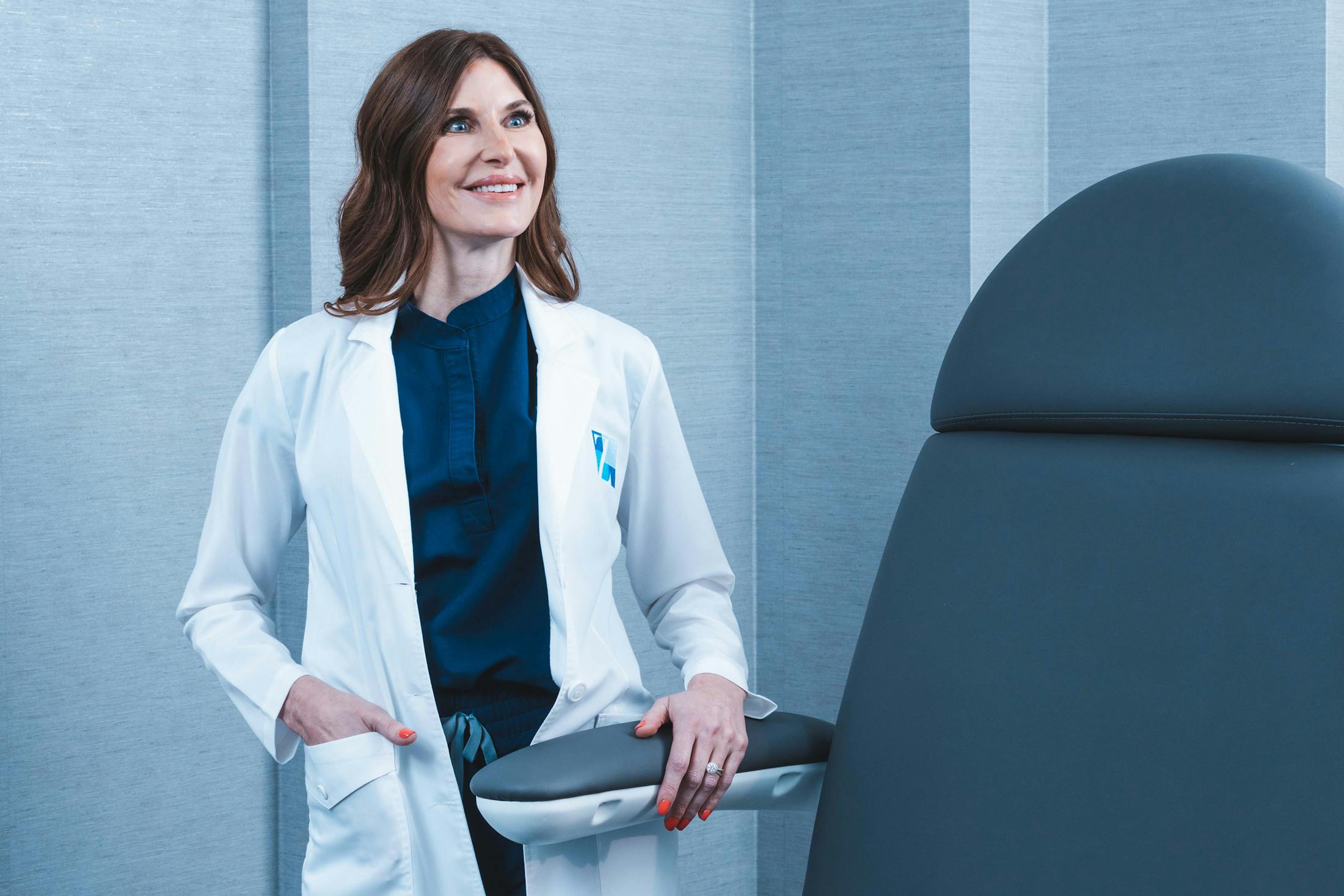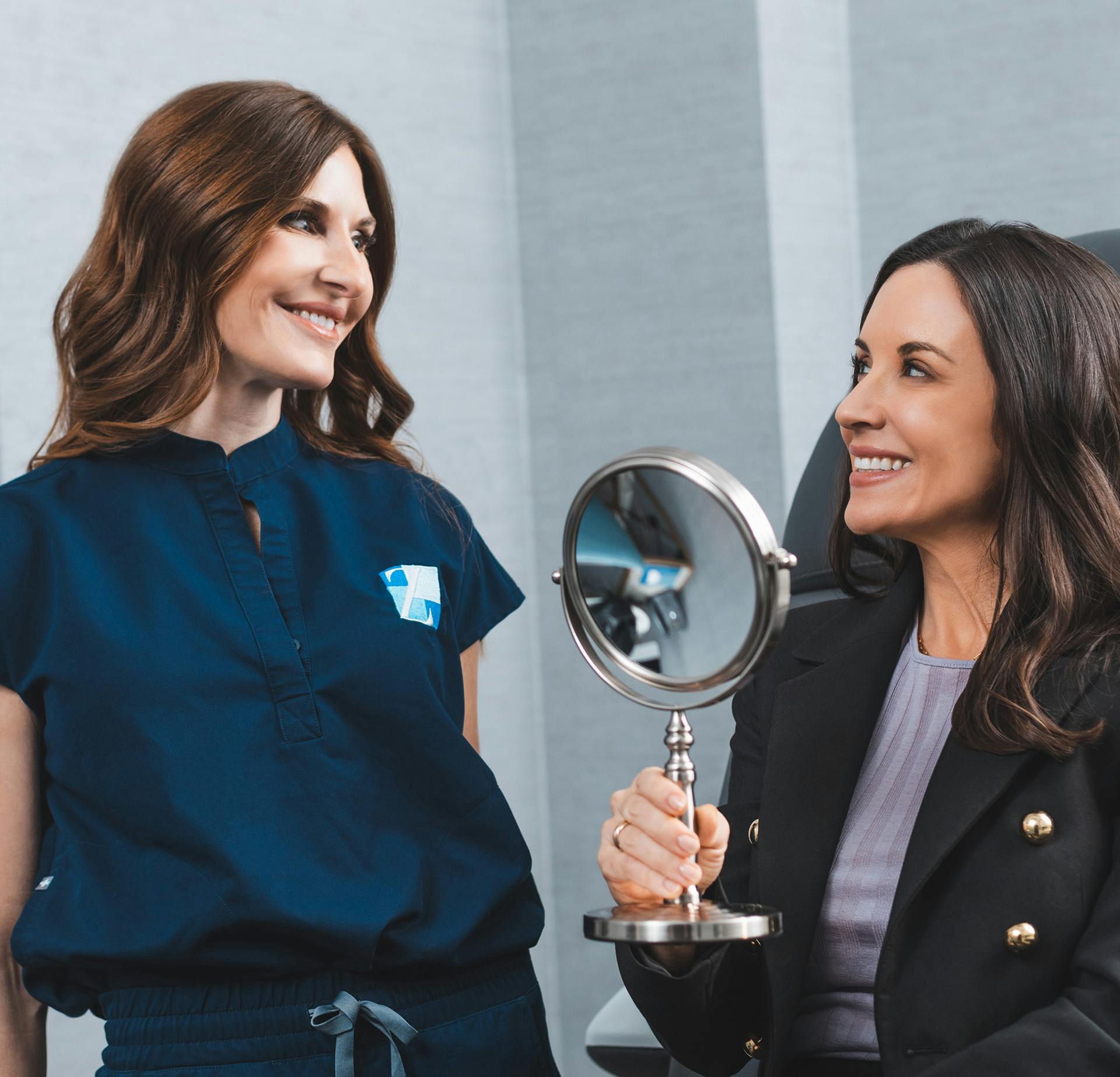Harness your body’s own healing powers to revitalize your skin under the expert care of Tara Cypher, RN, MSN, CANS.
What Happens During a Microneedling Session?
During your microneedling treatment, Tara uses an electronic fractional device. This microneedling device moves across the skin and makes tiny pinpoint punctures to create very minor micro-injuries. In response to the perceived “injury,” the human body then releases a cascade of growth factors. This repair process ultimately triggers new collagen synthesis.









